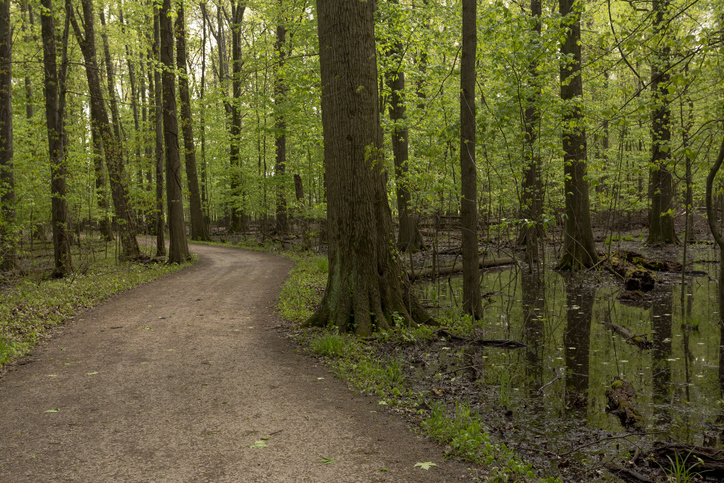Sustainable Future Demands Offshore Wind, Not Oil Drilling
April 20, 2022
April 20 marked 12 years since the BP Deepwater Horizon explosion and oil spill. The disaster released more than 200 million gallons of oil into the Gulf of Mexico, making it the largest marine oil spill in history. Its legacy includes more than $500 million in losses to the recreation industry, $1 billion of losses to the seafood industry, and a 4-8% decrease in the regional housing market. For years after, the spill continued to affect marine wildlife in the region.
While this tragedy was monumental in its size and devastation, oil spills are not rare events. They are continuously happening across the country. While separated by invisible jurisdictional lines, we all share one ocean, so an oil spill anywhere is an oil spill everywhere. That is why, as the Ocean State, we must do everything we can do to protect our coasts, wildlife and economy.
The federal government has demonstrated a renewed commitment to climate change, science and equity, however, it has also continued to auction off acres of the U.S. coast for drilling without considering the greenhouse gas emissions that could result. In the face of uncertainty, states are leading the way, not just in banning and restricting offshore drilling, but in transitioning our energy toward renewables.
In 2019, I stood with legislators from eight other states working on coordinated action to ban offshore drilling. Since then, 10 states have banned or restricted drilling.
As we continue to move away from offshore drilling, we must look toward the promises of offshore wind. The transition to renewable energy is essential in our fight against climate change. Offshore wind offers us an incredible opportunity to do that.
In the past few years, we’ve seen a surge of interest and opportunities around offshore wind. The latest federal lease auction in February in the New York Bight was the most successful in U.S. history. And not just for offshore wind auctions, but including the oil and gas industry. Offshore wind is our future and the future is now.
We’re in the critical decade for climate action. The climate crisis demands that we promptly cut greenhouse gas emissions and transition our energy to renewable sources. Offshore wind offers us an opportunity to mitigate climate impacts, protect human health, and conserve our ocean. This transition is larger than just the action of one state. It can only be achieved through a whole of government approach, coordination between states and critical collaboration with communities. That’s why I’m part of the Coastal Working Group through the National Caucus of Environmental Legislators.
This group brings together coastal legislators with a focus on ocean climate policy ideas, strategies and lessons learned. Through this group, I’m working with northeastern legislators to ensure our transition to offshore wind helps to meet ambitious climate goals. We must make sure that this development is done responsibly while taking into consideration workers, fisheries, local supply chains and marine wildlife protection.
This year, I introduced S.B.2583. This bill incentivizes regional coordination and requires that the distribution company request proposals for the development of 600 new megawatts of offshore wind by August. It also sets requirements for bidder proposals, including environmental and fisheries mitigation plans, a diversity, equity and inclusion plan, and employment and domestic supply chain considerations.
With states committing to a transition away from fossil fuels and toward renewable energy, I know we have what we need to take action on climate and protect our oceans from future disasters.
While this week we remember the tragedy of Deepwater Horizon, I stand hopeful and optimistic about the future of our ocean. I’m proud of the work the Ocean State and all coastal states are doing to not just prevent future disasters, but to improve the health of our coasts and wildlife, and create a thriving coastal economy for generations to come.
Sen. Dawn Euer (D-District 13, Newport, Jamestown) is chairwoman of the Senate Environment and Agriculture Committee.




I’m sure there will be many who are opposed to offshore wind facilities. The reality is that they don’t pollute the water or the air, don’t kill fish (in fact it has been shown that fish congregate around them), don’t kill birds, aren’t a hazard to shipping and aren’t especially prone to fire or disintegration. They can replace those systems which have shown, time and again, that they are prone to these problems. Wind facilities are cheaper then solar to build and operate and have a higher power density. And we have an almost embarrassing amount of wind energy available to New England. Offshore they do not use valuable agricultural or forested lands which are becoming scarce. You can boat and fish around them with no problem. They DO have a visual impact and they do make some noise, but not as much as a fossil fueled power plant with a 300′ high stack belching smoke and the attendant noise, or a 100 acre solar farm covering a hillside. Europe has been using wind energy for decades and we would be well advised to partake of their experience and expertise and follow their lead.